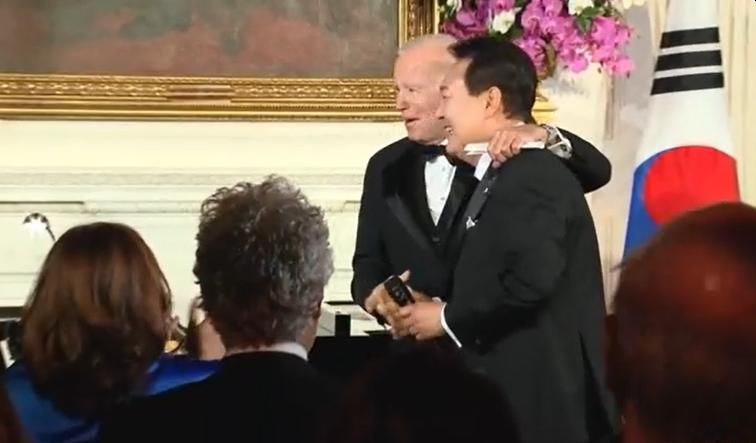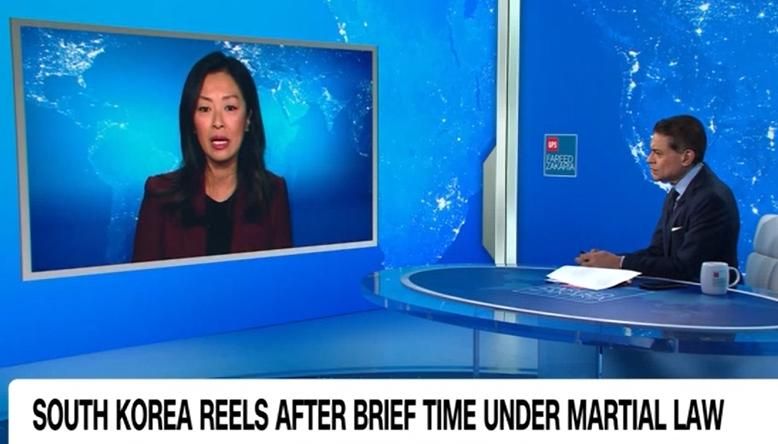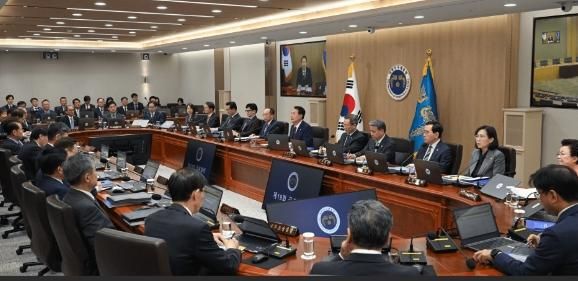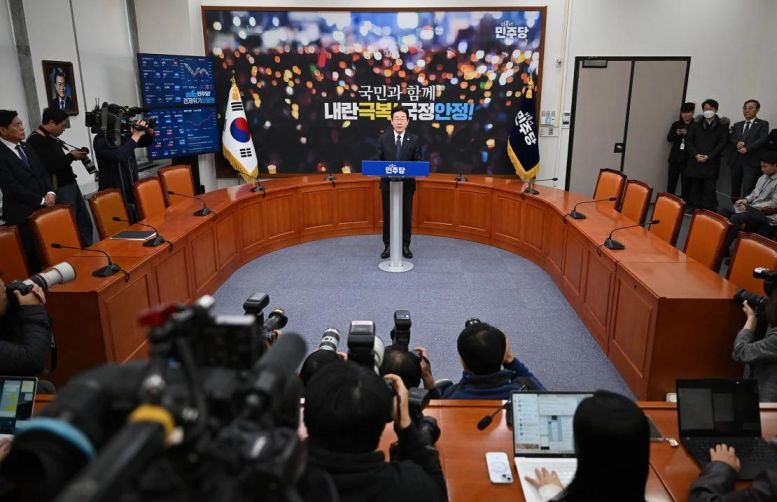By Eric Vandenbroeck and co-workers
At an earlier point
during South Korea's tumultuous period, we reported
about South Korea with today an unexpected high point.
South Korea’s
parliament voted to impeach Prime Minister and acting president Han Duck-soo on Friday, less than two weeks after parliament
stripped President Yoon Suk Yeol of his powers over his short-lived martial law
order that plunged the country into political disarray.
A total of 192
lawmakers voted to impeach Han, more than the 151 votes needed in the
300-member legislature.
South Korea’s
suspended president Yoon Suk Yeol authorized the military to fire their weapons
if needed to enter parliament during his failed bid to
impose martial law,
according to a prosecutors’ report seen by AFP on Dec 28.
The 10-page summary
from former defense minister Kim Yong-hyun’s
prosecution indictment report, which was provided to the media, also says Mr Yoon vowed on Dec 3 to declare martial law three times
if necessary.
Yoon, who
was stripped of
his duties by the National Assembly this month, is under investigation for his short-lived attempt
to scrap civilian rule, which plunged the country into political turmoil and
led to his impeachment.
Chaotic scenes
unfolded in parliament during the vote, as lawmakers of the ruling People Power
Party pumped their fists and chanted “Abuse of power” after National Assembly
speaker Woo Won-shik declared only a simple majority
would be needed to approve the impeachment motion against Han.
A simple majority is
the typical threshold needed to oust a sitting prime minister, while a
two-thirds majority is needed to impeach a president.
Han – who assumed the
role after parliament voted to impeach Yoon – said in a statement he respected
the decision and “will suspend my duties under relevant laws to avoid further
confusion and uncertainty.”

A total of 192
lawmakers voted for his impeachment, more than the 151 votes needed for it to
succeed.
Prime Minister Han
took over the role after President Yoon was
impeached by parliament following his failed attempt to impose martial law on 3
December.
Han was supposed to
lead the country out of its political turmoil, but opposition MPs argued that
he was refusing demands to complete Yoon's impeachment process.
Following
parliament’s vote to impeach Han, the finance minister and deputy prime
minister, Choi Sang-mok, is now acting president.
Han’s impeachment
comes as the country has been embroiled in weeks of political turmoil and
uncertainty following Yoon’s martial law decree on December 3, which lasted
only six hours and sparked mass protests.
Lawmakers, including
at least a dozen ruling party members, voted to
impeach Yoon two
weeks ago after he repeatedly refused to step down.
The Constitutional
Court has up to six months to decide whether to uphold or reject the
impeachment vote. It has vowed to take the case as a “top priority,” among
other impeachment cases the opposition has pushed for against members of Yoon’s
administration, including the justice minister, prosecutors, and other senior
officials.

The nine-member court,
however, currently only has six justices, due to a delay in filling vacancies
left by retired justices, further complicating matters.
Under South Korean
law, at least six out of nine justices must approve an impeachment for it to be
upheld.
The court has not yet
decided whether the six sitting justices alone can rule on Yoon’s fate. But if
they can, all six would have to vote in support of the impeachment to formally
remove Yoon.
“The acting president
has transformed into an ‘acting insurrection leader,’” South Korean opposition
leader Lee Jae-myung said in a press conference Friday, claiming the ruling
party had “abandoned its duty to uphold the Constitution,” and acts as Yoon’s
“loyal guard.”
Dramatic Scenes in Parliament
Chaos erupted in
parliament as the vote was held on Friday.
Lawmakers from Yoon
and Han's ruling People Power Party (PPP) protested after National Assembly
speaker Woo Won-shik announced that only 151 votes
would be needed to pass the impeachment bill.
This meant that,
unlike the 200 votes required for Yoon's impeachment, no votes from ruling
lawmakers would be needed this time for Han to be impeached in parliament.
Ruling party MPs gathered
in the middle of the voting chamber chanting, "invalid!" and
"abuse of power!" in response, and called for the Speaker to step
down. Most of them boycotted the vote.

Han will be suspended
from his duties as soon as he is officially notified by parliament.
The opposition first
filed an impeachment motion against Han on Thursday after he blocked the
appointment of three judges that parliament had chosen to oversee Yoon's case.
Korea's
Constitutional Court is typically made up of a nine-member bench. At least six
judges must uphold Yoon's impeachment in order for the decision to be upheld.
There are currently
only six judges on the bench, meaning a single rejection would save Yoon from
being removed.
The opposition had
hoped the three additional nominees would help improve the odds of Yoon getting
impeached.
This is the first
time an acting president has been impeached since South Korea became a
democracy.
Finance Minister Choi
Sang-mok is set to replace Han as acting president.
Like Yoon, Han's
impeachment will need to be confirmed by the constitutional court, which has
180 days to rule on whether the impeachment should be upheld.
"I respect the
decision of the National Assembly," Han said Friday, adding that he
"will wait for the Constitutional Court's decision."
He also said that he
would suspend his duties to "not add to the chaos".
Lee Jae-myung
delivers a statement on the impeachment motion against Han Duck-soo at the National Assembly on December 27.

Han’s ruling party
filed a dispute with the Constitutional Court over Friday’s vote, with floor
leader Kweon Seong-dong declaring the result “null and void.”
The vote to impeach
Han comes the same day as the Constitutional Court holds its first public
hearing on Yoon’s impeachment trial, starting a process to decide if he will be
removed from office permanently. Yoon is not required to attend the meeting.
If the Constitutional
Court upholds Yoon’s impeachment, he will become the shortest-serving president
in South Korea’s democratic history. The country must then hold new
presidential elections within 60 days.
Meanwhile, the former
prosecutor has been banned from leaving the country and is facing a string of
investigations, including potential charges of leading an insurrection – a
crime punishable by life imprisonment or even the death penalty.
For updates click hompage here